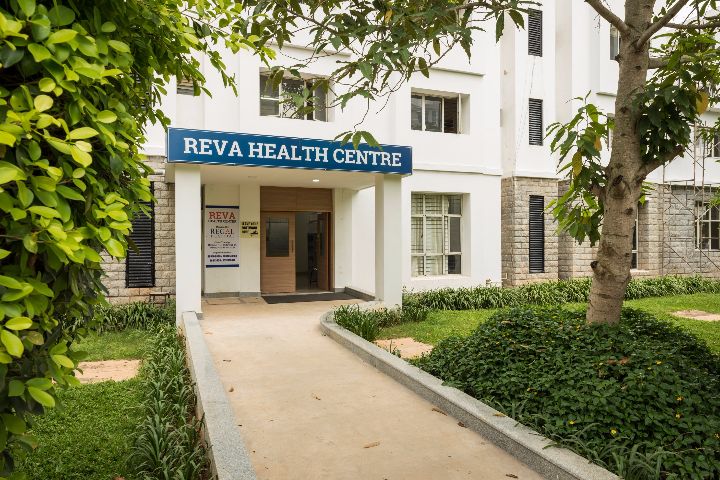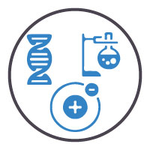
Microbiology Course Details - Fees, Subjects, Syllabus, Duration, Eligibility, Career Scope
Degrees offered: M.Sc., B.Sc., Ph.D, B.Sc.(Hons), BS
What is Microbiology
Microbiology is the scientific study of microorganisms such as bacteria, viruses, fungi, protozoa, and algae. This field plays a crucial role in medicine, agriculture, pharmaceuticals, and biotechnology. Microbiologists explore how microbes interact with their environments, helping address global challenges like disease control, food safety, and environmental sustainability.
The work of microbiologists involves a blend of laboratory research, computational analysis, and occasional fieldwork. Their understanding of diseases differs from the general public due to their scientific insight. Microbiologists significantly contribute to public health by identifying pathogens and developing treatments or preventive strategies to manage infections and promote overall wellness.
Microbiology courses are offered at both undergraduate and postgraduate levels, focusing on microbial diversity, activity, and impact. Graduates can pursue research careers and applied science. Top recruiters include Biocon, Dr. Reddy’s, Cipla, and Aurobindo Pharma, offering roles like clinical microbiologist or biotechnologist with salaries ranging from Rs. 3–13 LPA.
Important Dates: Microbiology
NEET PG: August 03, 2025
Microbiology: Highlights
Microbiology is a multidisciplinary science focusing on microorganisms and their roles in health, the environment, and industry. The course is available at undergraduate, postgraduate, and doctoral levels, offering wide-ranging career prospects in pharmaceuticals, research, and healthcare. Here are the key highlights of the Microbiology course, including duration, eligibility, fees, and career scope.
| Particulars | Values |
|---|---|
Branch Name | Microbiology |
Degree | |
Duration | UG: 4 years PG: 2 years |
Eligibility | UG: 10+2 (PCB) PG: Bachelor’s degree in the relevant field |
Admission Process | Entrance Exam or Merit-Based |
Entrance Exam | UG: CUET UG PG: NEET PG, GATE, GMAT, CUET PG, IIT JAM |
Average Course Fees | Rs. 6000 to Rs. 4 Lakhs |
Job Profiles | Microbiologist, Clinical Microbiologist, Research Microbiologist, Biotechnologist, Quality Control Microbiologist, Mycologist, Parasitologist |
Average Salary | Rs. 3 LPA - Rs. 13 LPA |
Top Recruiters | Cipla, Dr. Reddy’s, Biocon, Procter and Gamble, Sun Pharmaceutical Industries, Micron Technology, Aurobindo Pharma |
Specialisation or Similar Ones
Microbiology offers various specialisations that allow professionals to explore specific aspects of microorganisms and their applications. These fields provide focused knowledge in areas such as medical, environmental, industrial, and food microbiology, enabling students to develop expertise aligned with their career interests. Below are some of the prominent specialisations in microbiology.
Medical Microbiology | Industrial Microbiology |
Environmental Microbiology | Pharmaceutical Microbiology |
Veterinary Microbiology | Microbial Ecology |
Top Private Microbiology Colleges in India
In India, many private microbiology colleges provide undergraduate and postgraduate degrees. The top private microbiology colleges in India are listed in the table below. Admission to these institutions is determined by entrance examination results or direct admission based on merit.
| Top Colleges | Fees |
|---|---|
Rs. 2.45 Lakhs | |
Rs. 1.63 Lakhs | |
Rs. 1.85 Lakhs | |
Rs. 58,600 | |
Rs. 5.20 Lakhs | |
Rs. 66,570 | |
Shri Jagdishprasad Jhabarmal Tibrewala University, Jhunjhunu | Rs. 68,800 |
Rs. 2.60 Lakhs | |
Rs. 2.62 Lakhs | |
Rs. 99,000 |
Note: The fee structure provided above can be for any particular Microbiology course (Diploma/ Degree/PGD).
Top Government Microbiology Colleges in India
Many government institutes in India offer Microbiology courses at undergraduate and postgraduate levels. Candidates are advised to carefully study the eligibility criteria and course details before applying for admission to the same. Mentioned below are the top government institutes offering the same.
| Top Colleges | Fees |
|---|---|
Rs. 1.08 Lakhs | |
Rs. 1.42 Lakhs | |
Rs. 3 Lakhs | |
Rs. 14,760 | |
Rs. 39,000 | |
Rs. 2.55 Lakhs | |
Rs. 1.14 Lakhs | |
Rs. 78,190 | |
Rs. 60,000 | |
Rs. 1.43 Lakhs |
Eligibility Criteria (UG & PG) of Microbiology
The eligibility criteria for pursuing Microbiology courses vary based on the academic level and the specific institute’s requirements. For undergraduate programmes, students must meet the basic academic qualifications set by the college. Postgraduate programmes typically require a relevant undergraduate background. Below are the general eligibility criteria for both UG and PG courses.
Eligibility Criteria for UG Courses
Candidates interested in pursuing a Microbiology degree at the undergraduate level are required to fulfil certain eligibility requirements before applying to their desired course and institute. Mentioned below are the eligibility criteria for Microbiology at the undergraduate level.
- The candidate must have passed the 12th standard with 50 per cent marks (minimum) in science. Some colleges take admission based on scores obtained in qualifying exams.
- Some colleges take admissions on a national level, institute level, or state-level entrance exam.
- Scholarships are available for students belonging to reserved categories and economically weak sections.
Top Entrance Exams for UG Courses
To pursue undergraduate courses in Microbiology, candidates are often required to appear for specific entrance exams conducted at the national, state, or university level. Admission is generally granted based on a combination of entrance exam scores and merit in qualifying exams. These tests help shortlist eligible candidates for various institutions.
| Exam Name | Level | Conducting Body | Exam Schedule |
|---|---|---|---|
National | National Testing Agency |
Eligibility Criteria for PG Courses
Candidates should have completed their Bachelor's degree in Microbiology or a related discipline with a valid aggregate score. While the eligibility criteria may vary from institute to institute, the general eligibility requirements for postgraduate courses are as follows.
- A bachelor's degree in a relevant field is required along with a 50 per cent aggregate score in the qualifying examination.
- For reserved category students, there may be some relaxation in the aggregate score.
Top Entrance Exams for PG Courses
To pursue postgraduate studies in Microbiology, candidates must qualify for specific entrance exams accepted by various institutions. These exams assess subject knowledge and aptitude for advanced study. Clearing the required cutoff is essential for securing admission. Below are some of the most recognised entrance exams for PG courses in Microbiology.
| Exam Name | Level | Conducting Body | Exam Schedule |
|---|---|---|---|
| NEET PG | National | NBE | NEET PG Exam Schedule |
National | GATE Committee | ||
International | GMAC | ||
National | NTA | ||
National | IIT Madras |
College Predictors VIEW ALL
Scope of Microbiology in India and Abroad
Microbiology is a vast and interdisciplinary field offering numerous specialisations such as bacteriology, virology, immunology, and food microbiology. Students can tailor their career paths based on their interests, whether it's researching infectious diseases, ensuring food safety, or exploring microbial genetics. These specialisations cater to both industrial and academic domains.
Microbiologists play a vital role in public health, biotechnology, and environmental science. Their work contributes to developing life-saving treatments, safeguarding food quality, and controlling disease outbreaks. With applications in diagnostics, vaccine development, agriculture, and pharmaceuticals, microbiology continues to drive innovation and address challenges in global health and sustainability.
Career opportunities for microbiology graduates span across multinational companies, hospitals, research labs, and industrial sectors like cosmetics and food processing. Those with postgraduate or doctoral degrees often pursue research or academic roles. Emerging fields such as marine microbiology and environmental microbiology are also gaining momentum, offering rewarding paths both in India and abroad.
Course Fees Microbiology
| Minimum Fees | Maximum Fees | |||
|---|---|---|---|---|
| Private | Government | Private | Government | |
| UG | ||||
| PG | ||||
| DOCTORAL | ||||
| DIPLOMA | ||||
Course Subjects
The Microbiology syllabus varies based on the academic level of the programme. Undergraduate and postgraduate curricula cover diverse subjects like Biophysics, Biomathematics, and the Principles of Microbiology. These courses are structured to provide both theoretical knowledge and practical skills. Below is an overview of the UG and PG microbiology syllabus.
Microbiology Syllabus for UG Courses
The undergraduate syllabus for Microbiology provides students with a strong foundation in microbial biology, genetics, immunology, and biotechnology. It integrates theoretical knowledge with lab-based skills and computer applications. Covering six semesters, the curriculum prepares students for advanced studies or professional roles in research, healthcare, and industrial microbiology.
Semester 1 | Semester 2 |
Macromolecular Structure & Analysis | Organic Mechanisms in Biology |
Biophysics & Instrumentation | Principles of Transmission Genetics |
Cell Structure & Dynamics | Principles of Microbiology |
Biomathematics - I | Microbial Growth & Reproduction |
Chemistry (Pass) | Chemistry (Pass) |
Introduction to Computer (Pass) | Introduction to C-Programming & Digital Logic (Pass) |
Semester 3 | Semester 4 |
Microbial Genetics | Molecular Genetics |
Principles of Immunology | Computational Biology & Bioinformatics |
Plant and Animal Tissue Culture Techniques and applications | Biodiversity & Taxonomy |
Microbial diversity & classification | Microbial Biotechnology |
Chemistry (Pass) | Chemistry (Pass) |
Introduction to Data Structure & Computer Organisation (Pass) | Introduction to DBMS, Computer Network & Numerical Analysis (Pass) |
Semester 5 | Semester 6 |
DNA Typing, Proteomics & Beyond | Model Organisms in Human Genome Project |
Recombinant DNA Technology | Medical Microbiology |
Environmental Biotechnology | Food & Agricultural Microbiology |
Industrial Microbiology | Microbial Technology – Social, Legal & Ethical issues |
Genetic Engineering Techniques | - |
Applied Microbiology | - |
Microbiology Syllabus for PG Courses
The course aims to provide theoretical knowledge along with hands-on experience. The programme will also include thesis or project work to provide the student with relevant skills to work in research industries or laboratories. In the table below, we have mentioned the Microbiology syllabus for postgraduate degrees.
Semester 1 | Semester 2 |
Biostatistics and Computer Applications | Recent Trends in Virology |
Bioenergetics and Molecular Enzymology | Molecular Immunology |
Bioinstrumentation | Microbial Physiology |
Food and Dairy Microbiology | Microbial Diversity and Extremophiles |
Semester 3 | Semester 4 |
Enzyme Technology | Recombinant DNA Technology |
Bioprocess Engineering and Technology | Fermentation Technology |
Microbial Genetics | Bioinformatics, Microbial Genomics and Proteomics |
Environmental Microbial Technology | Pharmaceutical Microbiology |
Careers in Microbiology
Professionals in Microbiology play a vital role in understanding and managing the microscopic world that affects human health, agriculture, and industry. They investigate the characteristics and behaviours of microbes, helping to diagnose infections, develop vaccines, and ensure food and environmental safety. Their expertise directly supports scientific innovation and public health.
With increasing focus on infectious diseases, biotechnology, and sustainable solutions, microbiologists are in high demand across pharmaceutical companies, research labs, hospitals, and environmental agencies. Equipped with laboratory and analytical skills, graduates in Microbiology contribute to advancements in diagnostics, drug development, and microbiome research, making meaningful impacts across scientific and healthcare sectors.
Upcoming trends
Microbiology continues to evolve with emerging trends focused on combating global health challenges, advancing diagnostics, and enhancing environmental sustainability. Innovations in genomic technologies, antimicrobial resistance studies, and microbiome research are driving breakthroughs in medicine, agriculture, and biotechnology. These trends are shaping the future of microbiology across interdisciplinary domains. Below are some of the current and impactful trends in Microbiology:
- Next-Generation Sequencing (NGS) and Genomic Analysis
- Microbiome Research for Gut and Environmental Health
- Antimicrobial Resistance (AMR) Surveillance and Mitigation
- CRISPR and Gene Editing in Microbial Engineering
- Synthetic Biology for Vaccine and Drug Development
- Rapid Diagnostics and Point-of-Care Testing Technologies
- Environmental Microbiology for Climate and Waste Management
- Bioinformatics Integration for Microbial Data Analysis
Job Profiles and Top Recruiters
Microbiology offers excellent career prospects, with growing demand across healthcare, pharmaceuticals, research, and biotechnology. As emerging diseases increase, microbiologists play a key role in diagnosis, treatment development, and public health safety. The field provides meaningful contributions to science and society. Here are some of the job profiles available in microbiology.
| Job Profiles | Description |
|---|---|
Microbiologists | Microbiologists study microorganisms to understand their physiology, behaviour, and effects on health and the environment. They conduct experiments to find practical applications in medicine and industry. |
Clinical Microbiologists | Clinical Microbiologists analyse patient samples to identify infectious agents. They assist in diagnosing diseases and support effective treatment planning in clinical settings. |
Research Microbiologists | Research Microbiologists explore microbial genetics, metabolism, and ecology. They contribute to scientific discoveries that improve healthcare, agriculture, and biotechnology. |
Biotechnologists use microorganisms in the development of useful products like vaccines, enzymes, and biofuels. They apply microbiological techniques in various industrial sectors. | |
Quality Control Microbiologists | Quality Control Microbiologists ensure that products meet microbiological safety and quality standards. They perform rigorous testing during manufacturing processes, especially in pharmaceuticals and food industries. |
Mycologists | Mycologists specialise in the study of fungi, including their genetics and medicinal properties. They play a vital role in fields like agriculture, environmental science, and pharmaceuticals. |
Parasitologists | Parasitologists investigate parasites and their life cycles to combat parasitic infections. They work on disease control strategies in healthcare, veterinary, and tropical medicine sectors. |
Top Recruiters
- Cipla
- Dr. Reddy’s
- Biocon
- Procter and Gamble
- Sun Pharmaceutical Industries
- Micron Technology
- Aurobindo Pharma
Average Salary
Graduates in Microbiology often earn competitive salaries due to the field’s high demand across various industries. Professionals can work in healthcare, pharmaceuticals, research, and biotechnology sectors. The table below highlights some of the prominent job roles in Microbiology along with their corresponding average salary ranges in India.
| Job Profiles | Average Salary (LPA) |
|---|---|
Microbiologist | Rs. 3.1 LPA |
Clinical Microbiologist | Rs. 10 LPA |
Research Microbiologist | Rs. 3 LPA |
Biotechnologist | Rs. 2.9 LPA |
Quality Control Microbiologist | Rs. 3.1 LPA |
Mycologist | Rs. 9.2 LPA |
Parasitologist | Rs. 13.1 LPA |
Source: AmbitionBox, Salary Expert
Required Skillset for Microbiology
Microbiology students are expected to develop a solid scientific foundation, combined with practical laboratory abilities and analytical thinking. The field demands attention to detail, the ability to interpret experimental data, and effective communication for reporting findings. Here are some of the essential skills required to succeed in microbiology courses across all levels:
- Scientific knowledge in biology and chemistry
- Laboratory and equipment handling skills
- Analytical and critical thinking
- Attention to detail and accuracy
- Communication and teamwork skills
- Data interpretation and problem-solving abilities
Course Curriculum for Microbiology
The Microbiology curriculum blends theoretical concepts with practical laboratory training, covering microbial taxonomy, genetics, immunology, and industrial applications. It prepares students for roles in research, healthcare, and biotechnology through classroom instruction, experiments, and project work. Below are the key areas typically covered in the Microbiology curriculum:
- Fundamentals of Microbiology and Microbial Taxonomy
- Bacteriology, Virology, Mycology, and Parasitology
- Microbial Genetics and Molecular Biology
- Immunology and Host-Pathogen Interaction
- Environmental and Industrial Microbiology
- Medical and Clinical Microbiology
- Instrumentation and Laboratory Techniques
- Biostatistics and Research Methodology
- Bioinformatics and Microbial Genomics
- Internships, Seminars, and Dissertation/Research Projects
Popular Microbiology Entrance Exams in India
Frequently Asked Questions (FAQs)
Question: Is NEET necessary for microbiology?
Answer :
No, NEET is not mandatory for pursuing Microbiology courses. NEET is required for medical and dental programmes like MBBS or BDS. For undergraduate Microbiology courses such as B.Sc, admissions are generally based on merit or entrance exams like CUET.
Question: Are online courses in microbiology worth it?
Answer :
Free online courses are offered with no academic credits or grades. They can be used for gaining knowledge in microbiology. Paid courses are worth it and offer certifications and degrees. There are good facilities online like undergraduate certificates, bachelor’s degrees, and master’s degrees via individual classes.
Question: How to prepare for microbiology entrance exams?
Answer :
The students must have prior knowledge about the syllabus and question paper. Mostly question papers are devised for 2-3 hours consisting of objective-type questions. A clear understanding of these is necessary. Previous year’s question papers can be of great help to prepare.
Question: What is a Microbiology course?
Answer :
Microbiology teaches the basics of reproduction, morphology, and genetics. The course aims to make students learn about molecular methods, infectious diseases, and biochemical characteristics.
Question: What’s the difference between Biochemistry and Microbiology?
Answer :
The similarity between them is that they both focus on living organisms. Biochemistry involves the study of macromolecules that form an organism. At the same time, microbiology studies the organism as a whole.
































